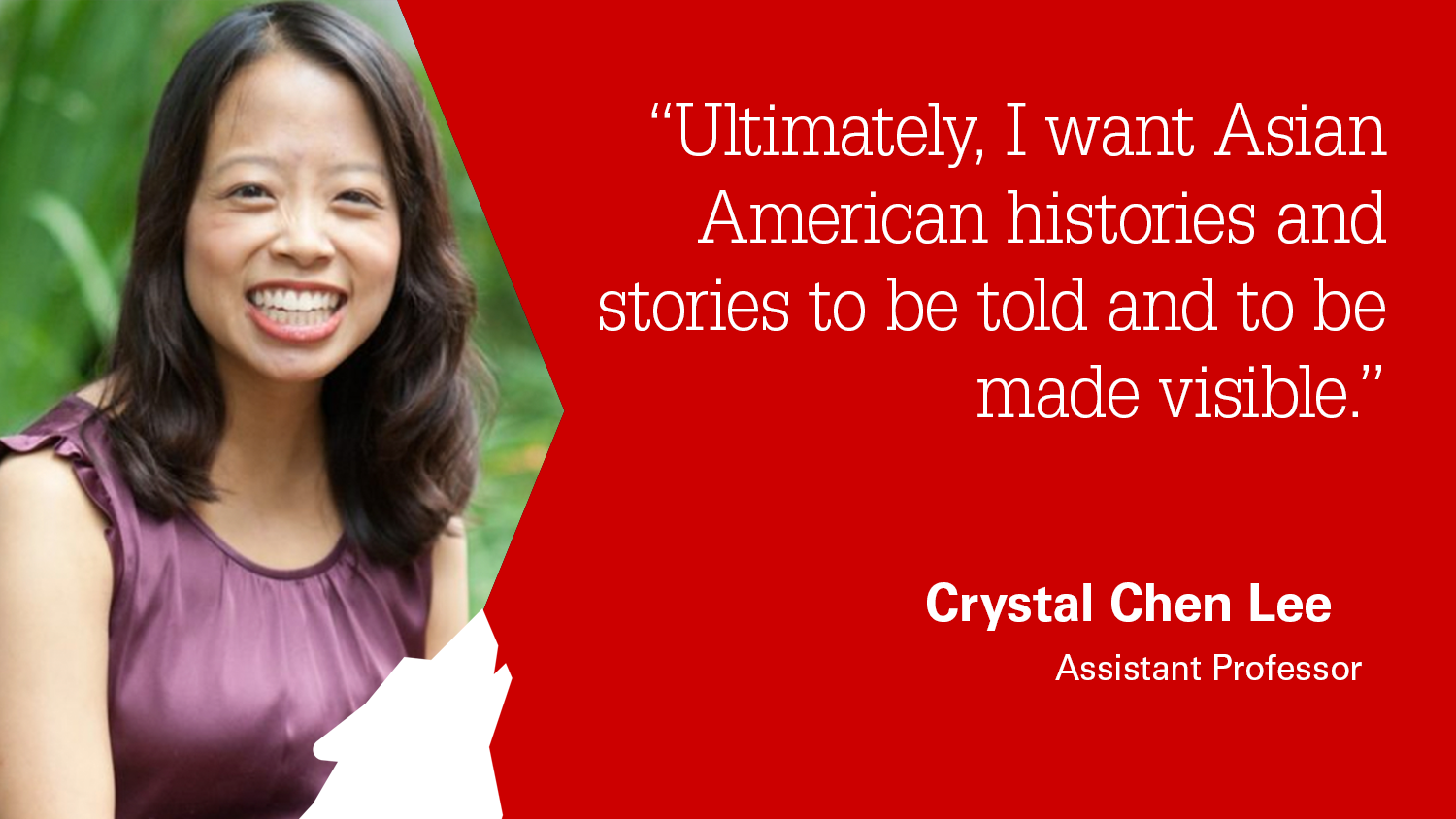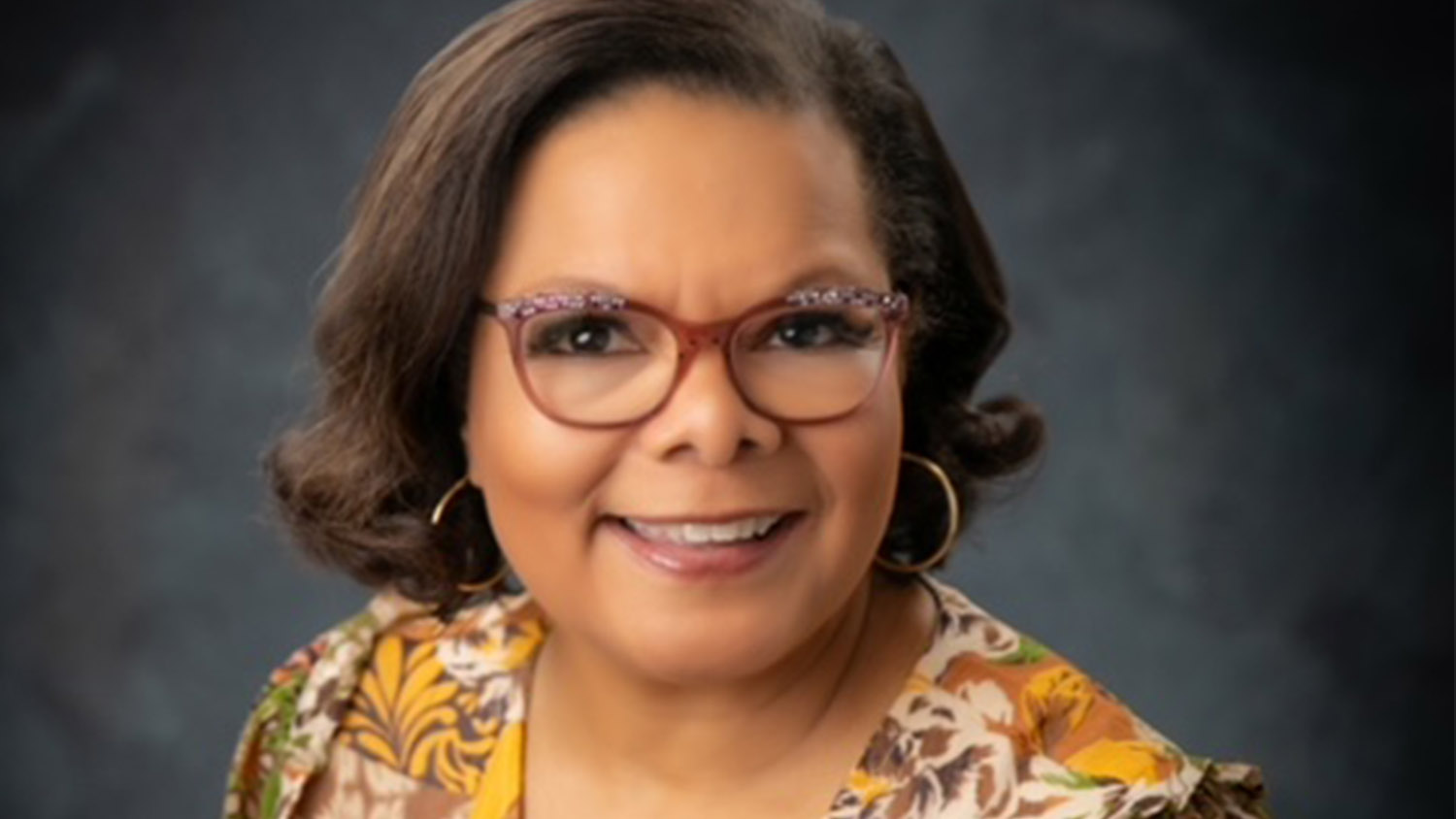Symposium Organized by Assistant Professor Crystal Chen Lee Encourages ‘Teaching and Telling Asian American Stories’ in the Classroom

Asian Americans are the fastest growing racial group in the United States, with more than 22 million people in this country having origins in East and Southeast Asia and the Indian subcontinent. Despite this population growth, Asian American stories are often absent from school curricula and Asian American histories rarely appear in state standards for K-12 education.
As the child of immigrant parents from Taiwan and a scholar whose research focuses on amplifying student stories, NC State College of Education Assistant Professor Crystal Chen Lee decided to organize the “Teaching and Telling Asian American Stories Virtual Symposium” to share these often invisible stories of Asian Americans. The event will be held June 1 at 6 p.m. through the Friday Institute for Educational Innovation, which is a part of the College of Education.
“Given the rise of anti-Asian hate, it is important for us to think about how to include Asian American stories and histories in the classroom. Our symposium aims to provide concrete teaching strategies and pedagogy on how to bring untold stories from Asian Americans into Pre-K-12 classrooms,” Lee said.
Following a rise in anti-Asian hate, Illinois and New Jersey passed legislation requiring PK-12 schools to include Asian American history in their curriculum. Lee wanted to ensure that Asian American students are similarly represented in academic spaces in North Carolina and prepare pre-service teachers to be able to meet the needs of their Asian and Asian American students through this virtual symposium, which will focus on Asian American literature, civic education and immigrant voices in the Asian diaspora.
To develop the symposium, Lee partnered with Cathlin Goulding, director of YURI Education, which creates educational resources and experiences for cultural institutions, teachers and students with a specific focus on the creation of curricula related to Asian American histories and stories.
“We wanted the symposium to include multiple ways of telling the stories of Asian Americans,” Lee said.
The event will begin with an opening session from Lee and YURI Education that focuses on Asian American history in the United States, followed by a reading from a student in Lee’s Literacy and Community Initiative, who will share about her experiences as an Asian refugee.
A keynote speech will be delivered by Joanna Ho, author of the New York Times bestselling picture book Eyes that Kiss in the Corners, which has been used as a resource in elementary school classrooms to share about Asian American experiences.
Educators who attend the symposium will then have an opportunity to engage in one of three workshops that offer pedagogical strategies for teaching Asian American stories and histories in the classroom.
One workshop, led by Goulding and YURI Education project co-director Freda Lin, will share a curriculum designed around the 2021 Amy Tan: Unintended Memoir documentary that addresses how the Joy Luck Club author’s works can serve as a starting point for anti-racist teaching. The session will draw on resources available for free from PBS LearningMedia and will include activities that can be used by teachers in their classrooms.
The second workshop, led by Jungmin Kwon, an assistant professor at Michigan State University, will allow educators to explore and engage with stories, writings, drawings, photographs and maps that demonstrate the multilingual and transnational expertise of Asian immigrant children and their families.
The final workshop, hosted by North Carolina Asian Americans Together (NCAAT), will help teachers gain a better understanding of how to connect with their Asian American students and engage with the Asian American community in North Carolina. Workshop leaders, MK Alova and Giselle Pagunuran, will share their own experiences with community involvement and share resources to inspire Asian American youth to be civically engaged in the state.
Lee said her hope for the symposium is that it will serve as a starting point for educators, who perhaps don’t know much about Asian American stories, to listen, learn and begin to adopt some strategies in their instruction that amplify the histories and experiences of their Asian American students.
“I am encouraged by teachers who do not know much about Asian American stories but want to listen and learn more. I hope those that come will feel open to ask questions and to learn from other educators around the United States,” Lee said. “Ultimately, I want Asian American histories and stories to be told and to be made visible.”
- Categories:


